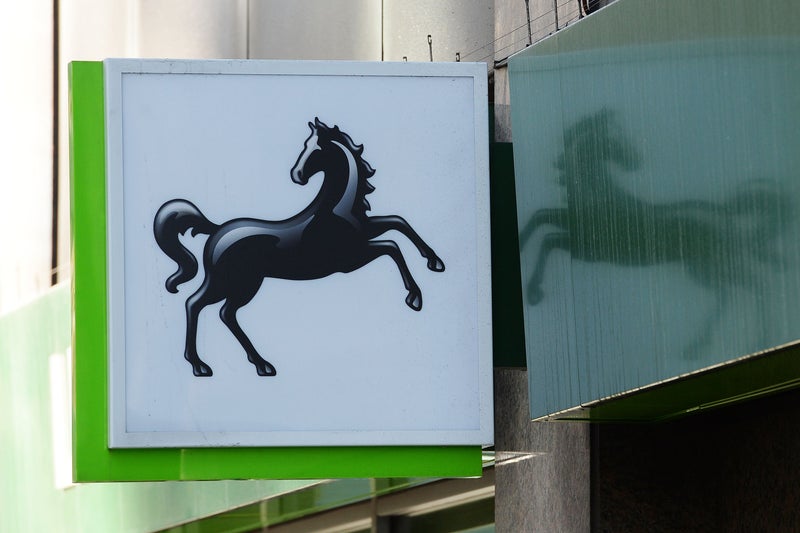Huge fee change for Lloyds, Halifax and Bank of Scotland customers from TODAY
Huge fee change for Lloyds, Halifax and Bank of Scotland customers from TODAY
Share:
LLOYDS Banking group is making a huge fee change for millions of customers from today. It comes just six months after Lloyds, Halifax and Bank of Scotland made a raft of changes to interest rate charges on overdrafts. An overdraft allows you to spend money or withdraw cash even if your account balance falls below £0. However, you may be charged interest on the amount you go over your limit. The interest rate you're charged depends on your account type and an "affordability check," which considers your credit history.
![[Collage of Bank of Scotland, Lloyds Bank, and Halifax branches.]](https://www.thesun.co.uk/wp-content/uploads/2025/01/TOB-HUGE-change-in-bank-branches_COMP.jpg?strip=all&w=960)
Back in August, Lloyds Banking Group announced changes to its overdraft rates. This included scrapping the 27.5% preferential rate for customers with Club Lloyds accounts. At the same time, they introduced two lower interest rate tiers of 19.9% and 29.9%, which are set to come into effect on today. At the same time, Lloyds announced the introduction of two lower interest rate tiers of 19.9% and 29.9%, which would come into affect on January 31, 2025.
Despite these changes, the majority of customers with Lloyds, Halifax, and Bank of Scotland remain on the standard 39.9% rate. The highest rate of 49.9%—the steepest among major high street banks - also remains in place. When these changes were first announced, Lloyds stated that most customers would pay the same or less. However, some will face higher charges, with certain Club Lloyds customers seeing their rate nearly double from 27.5% to 49.9%.
To ease the impact, customers whose rates were being increased were temporarily moved to either a 34.9% or 44.9% rate in August 2024. However, these temporary rates have now ended, and as of today, customers will see their rates rise again to either 39.9% or 49.9%, depending on their account. If you've been moved onto the highest rate, it's worth having a shop around to see if you can get a better deal elsewhere.
You can check what most banks are charging for their overdraft by visiting Moneyfactscompare.co.uk. Five banks currently offer interest-free buffers with their overdrafts. This means they won't charge interest on your debt until your borrowing exceeds a certain amount. For example, First Direct offers a £250 interest-free buffer and Nationwide recently extended its own from 1p to £50. BORROWING sounds like a simple way to help pay bills – but beware falling into debt you cannot pay back.
It's always vital to ask yourself if you actually need to borrow before committing to a new credit card, personal loan or overdraft. If you cannot afford to pay off debt you already have, you should avoid at all costs taking on any more. Depending on individual circumstances, some borrowers may find it more cost-effective to use alternatives to an overdraft, such as a credit card with a 0% interest period.
These credit cards allow you to move more expensive debts you already owe on to a new card, and you won’t pay interest on this amount for a set period. For example, Barclaycard is currently offering no interest for up to 32 months on its balance transfer cards. Some people may also have savings they could turn to, rather than to help clear their debt. Ideally, you will have built up an emergency fund which you can dip into — but sometimes that just isn’t possible.
Before you borrow cash, do your research and find out the cheapest option for you. And remember to speak to your bank as lenders must help if you're in financial difficulty. If you are looking for a cheaper way to borrow, it's also worth considering a loan from a credit union. They are a much cheaper alternative to payday loans, and some can even get cash to you on the same day. The interest rate offered on these loans is substantially lower than that offered on a credit card or overdraft.
Interest ranges from 12.7 per cent APR (one per cent a month) to a maximum capped rate of 42.6 per cent APR (3.5 per cent a month). There are several groups which can help you with your problem debts for free. You can also find information about Debt Management Plans (DMP) and Individual Voluntary Agreements (IVA) by visiting MoneyHelper.org.uk or Gov.UK. Speak to one of these organisations - don't be tempted to use a claims management firm.






















